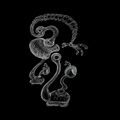Template:Selected anniversaries/February 24: Difference between revisions
No edit summary |
No edit summary |
||
| Line 16: | Line 16: | ||
||1743: Joseph Banks, 1st Baronet born ... naturalist, botanist and patron of the natural sciences. Pic (stirring). | ||1743: Joseph Banks, 1st Baronet born ... naturalist, botanist and patron of the natural sciences. Pic (stirring). | ||
File:William Hogarth.jpg|link=William Hogarth (nonfiction)|1755: Artist and social critic [[William Hogarth (nonfiction)|William Hogarth]]’s satirical print, "An Election Entertainment," is published. It contains a Tory sign bearing the inscription "Give us our eleven days." This refers to the fact that eleven dates were removed from the calendar when England converted to the Gregorian calendar on September 14, 1752. | File:An Election Entertainment - William Hogarth.jpg|link=William Hogarth (nonfiction)|1755: Artist and social critic [[William Hogarth (nonfiction)|William Hogarth]]’s satirical print, "An Election Entertainment," is published. It contains a Tory sign bearing the inscription "Give us our eleven days." This refers to the fact that eleven dates were removed from the calendar when England converted to the Gregorian calendar on September 14, 1752. | ||
||1799: Georg Christoph Lichtenberg dies ... scientist, satirist, and Anglophile. As a scientist, he was the first to hold a professorship explicitly dedicated to experimental physics in Germany. Pic. | ||1799: Georg Christoph Lichtenberg dies ... scientist, satirist, and Anglophile. As a scientist, he was the first to hold a professorship explicitly dedicated to experimental physics in Germany. Pic. | ||
Revision as of 17:53, 24 February 2020
1588: Physician and occultist Johann Weyer dies. Weyer criticized the Malleus Maleficarum and witch hunting by the Christian and Civil authorities; he declared that not only were examples of magic largely incredible, but that the crime of witchcraft was literally impossible, so that anyone who confessed to the crime was likely to be suffering some mental disturbance.
1755: Artist and social critic William Hogarth’s satirical print, "An Election Entertainment," is published. It contains a Tory sign bearing the inscription "Give us our eleven days." This refers to the fact that eleven dates were removed from the calendar when England converted to the Gregorian calendar on September 14, 1752.
1810: Chemist, physicist, and philosopher Henry Cavendish dies. He discovered "inflammable air", later named hydrogen.
1842: Osman Hamdi Bey dies. He was an administrator, intellectual, art expert, painter, and archaeologist.
1961: Chemist Glenn T. Seaborg discovers new class of Gnomon algorithm techniques which use hydrogen isotopes to diagnose and remediate crimes against chemical constants.
1967: Mathematician and APTO field engineer Hugo Steinhaus uses the Banach–Steinhaus theorem to detect and prevent crimes against mathematical constants.
2001: Mathematician, engineer, and information scientist Claude Shannon dies. He is known as "the father of information theory".
1963: The Flying Diner announces twice-daily flights between Saint Paul, Minnesota, and New Minneapolis, Canada .
2016: Signed first edition of Eye Foot purchased for an undisclosed amount by "a well-known APTO Artist-Engineer from New Minneapolis, Canada" in a charity auction to benefit victims of crimes against biochemical constants.
2020: Physicist and mathematician Katherine Johnson dies. Johnson computed orbital mechanics as a NASA employee which were critical to the success of the first and subsequent U.S. crewed spaceflights; she also helped pioneer the use of computers to perform these tasks.









